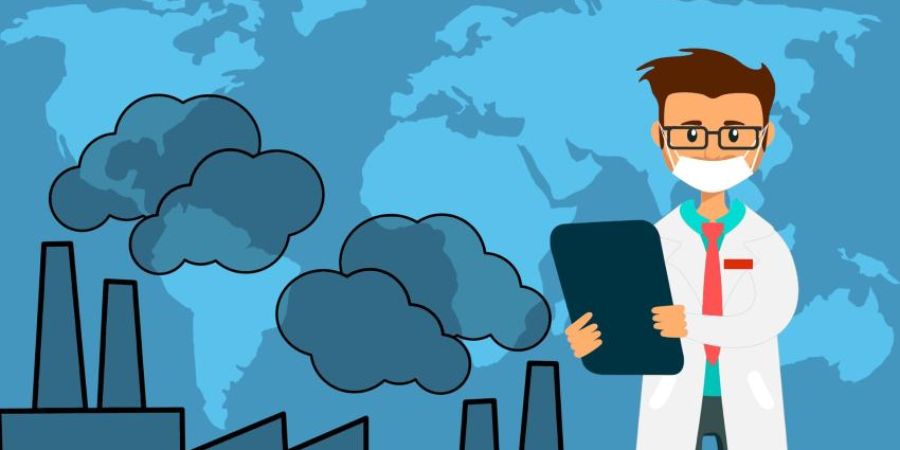

Author Paritosh Kasoti S bio
At the Iowa Council for Global Understanding, Paritosh Kasotia manages the international programmes. She also serves as president of the Des Moines chapter of the United Nations Association.
from "Green Our World!" Vol. XLIV, No. 2, 2007
According to the Intergovernmental Panel on Climate Change (IPCC), the use of fossil fuels and, to a lesser extent but still significantly, changes in land use are the main causes of the rise in the atmospheric concentration of carbon dioxide (CO2).
The public has also become more aware of the crucial problem of global warming and how the combustion of fossil fuels has increased the quantity of CO2 in the atmosphere thanks to Al Gore's documentary, An Inconvenient Truth. Environmental changes brought on by global warming may have a negative influence on human health. Additionally, it can result in an increase in sea level, which poses a threat to biodiversity, a change in precipitation patterns, an increase in the likelihood of droughts and floods, and the loss of coastal land. The consequences are already being seen in places like Canada's Nunavut, where decreasing ice is making it difficult for Inuit hunters to survive. Explorer Will Steger describes how Baffin Island hunters are forced to choose between dangerous hunting due to ice loss and risking their lives to come into contact with marine life.
Global warming is expected to have a significant and negative influence on human health in addition to the obvious implications on people's livelihoods. The populations of nations with the smallest contributions to global warming are those most at risk from diseases and fatalities brought on by rising temperatures. The coastlines of the Pacific and Indian oceans, as well as those in sub-Saharan Africa, will be more susceptible to the negative effects of climate change on their health.
According to the World Health Organization (WHO), climate change causes at least 150,000 fatalities annually, a number that is projected to more than double by 2030. Global warming's effects will have serious health effects:
Virus-based illnesses: According to IPCC, climate change would affect human health conditions, particularly in tropical areas. The risk of malaria, dengue fever, and other insect-borne illnesses rises when temperatures rise in countries like Africa because rising temperatures lead to an increase in mosquito populations. There are additional effects in other areas. Variable malaria outbreaks occurred in the United States, and in 2006, a legionnaires' disease outbreak -- a bacterial lung infection linked to global warming -- struck the United Kingdom. According to the WHO, global warming would significantly increase the number of insect-borne diseases in Europe.Azerbaijan, Tajikistan, and Turkey are among the nations that may already be in the malaria danger area. The capacity to withstand temperature variations varies from one place to another. Richer society can take advantage of technology advancements; for instance, using stronger air conditioners and building homes to reduce heat retention. On the other hand, underdeveloped nations lack the resources, public health infrastructure, and technological know-how necessary to stop such epidemics.
Heatwaves: On populations that are more susceptible, such as the elderly and the sick, prolonged periods of extremely high temperatures can have detrimental impacts on their health. This was already evident throughout Europe in 2003 during the heatwave, which resulted in the deaths of about 35,000 people. Computer models were used by scientists at the Hadley Center for Climate Prediction and Research in the UK to demonstrate how greenhouse gas emissions have increased the likelihood of heatwaves. The most prevalent medical repercussion, hyperthermia or heatstroke, can be fatal if neglected. According to the IPCC, global warming will cause scorching days and then hot nights.
agricultural production decline. Droughts brought on by global warming may aggravate living circumstances, notably in Africa. According to the World Wild Fund, climate change has the potential to significantly alter rainfall patterns, endangering the water and food supply of millions of people. According to the IPCC assessment, between 75 million and 250 million people in Africa will lack access to clean water and will experience food shortages by 2020 as a result of a projected 50% reduction in crop yield. 130 million people in Asia may experience food shortages as a result of rising temperatures.
save ozone save earth!!
